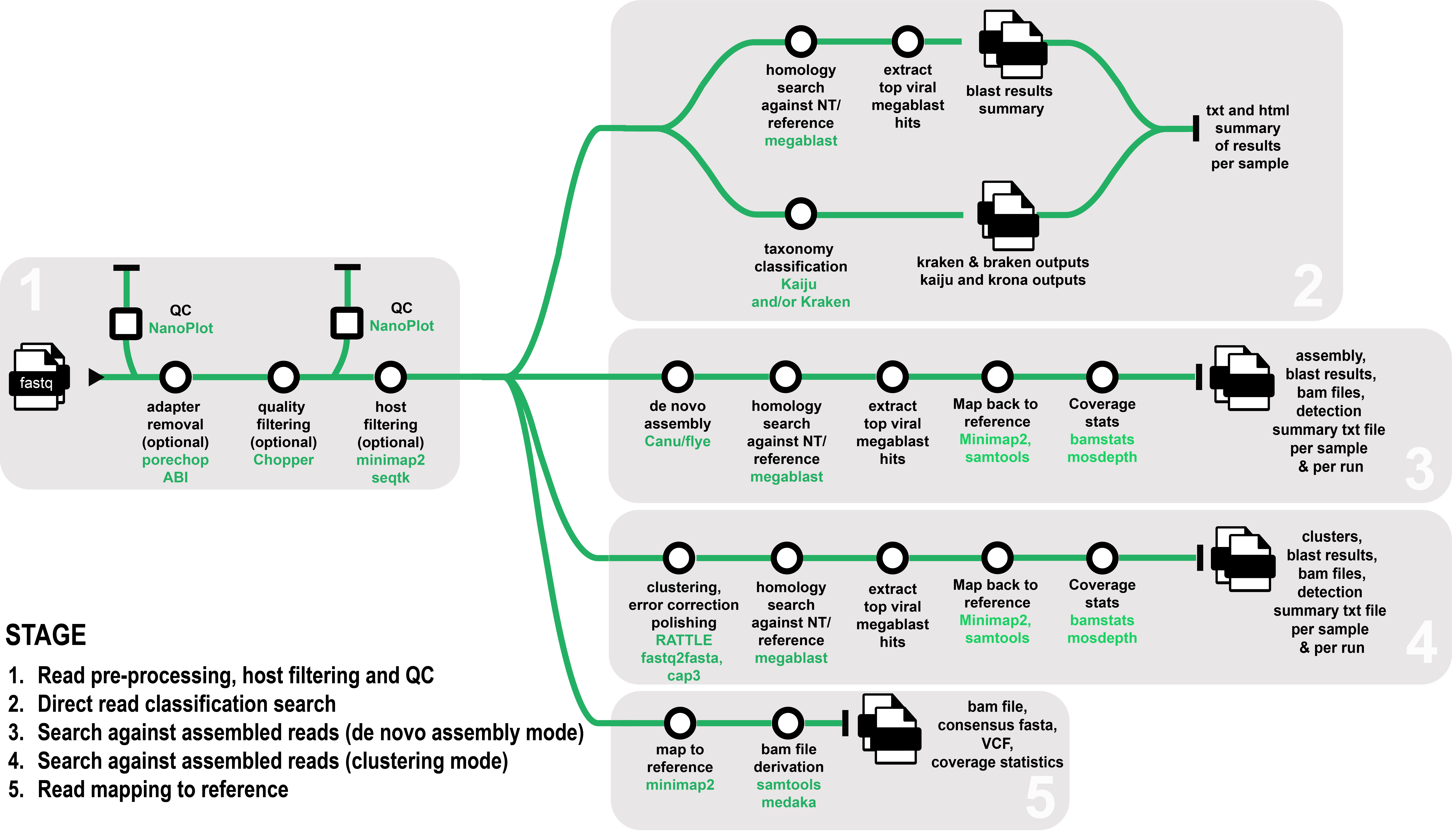About this guide
This is a guide outlining how to set up and execute the ONTViSc pipeline on three high-performance computing systems hosted by Australian research and computing facilities: Lyra (Queensland University of Technology), Gadi (National Computational Infrastructure) and Setonix (Pawsey). Throughout this guide we will make use of the Australian Nextflow Seqera Service provided to the researchers by Australian BioCommons.
ONTViSc (ONT-based Viral Screening for Biosecurity)
ONTViSc is a Nextflow-based bioinformatics pipeline designed to help diagnostics of viruses and viroid pathogens for biosecurity. It takes fastq files generated from either amplicon or whole-genome sequencing using Oxford Nanopore Technologies as input. The pipeline can either: 1) perform a direct search on the sequenced reads, 2) generate clusters, 3) assemble the reads to generate longer contigs or 4) directly map reads to a known reference. The reads can optionally be filtered from a plant host before performing downstream analysis.

Please cite this guide as follows
Antczak, M., Gauthier, M., & Capon, P. (2024). ONTViSc pipeline on HPC using Australian Nextflow Seqera Service (Version 1.0) [Computer software]. https://mantczakaus.github.io/ontvisc_hpc_seqera_service_guide/
References
Databases and tools
NCBI NT
Kraken2-compatile pre-built index
Kaiju-compatible pre-built index
Viral database (QUT)
Canu publication
Canu documentation
NCI
Gadi User Guide/User Account and Project Memberships
Pawsey
Requesting Access to Pawsey Supercomputers
Australian BioCommons
The Australian BioCommons Leadership Share (ABLeS)
The Australian Nextflow Seqera Service
User Guide for the Australian Nextflow Seqera Service
QUT
Start using the HPC
eResearch team
Seqera
User guide for the Seqera Platform, v24.1
Nextflow documentation
Nextflow training
Acknowledgements
This work is supported by Australian BioCommons via funding from Bioplatforms Australia and the Queensland Government Research Infrastructure Co-investment Fund (RICF) programme. Bioplatforms Australia is funded by the National Collaborative Research Infrastructure Strategy (NCRIS).
This guide makes use of the ELIXIR toolkit theme
